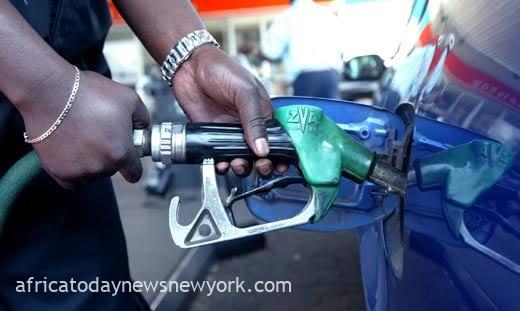The bleak situation in the country’s downstream sector seems to have no immediate resolution, with industry players expressing concern over the escalating cost of petrol due to the persisting foreign exchange crisis and challenges within the local distribution network.
During the Oil Trading and Logistics, OTL, Africa Week in Lagos, Jude Nwaulune, the Managing Director of Rainoil Logistics, highlighted that the projected cost of the product has reached around N580 per liter targeting the Calabar area.
Nwaulune stated, ‘The realities have been alluded to from the FX perspective, primarily sourcing from the parallel market, which most marketers are compelled to do. Reviewing our operational bases, the landing cost of PMS in Lagos is around N565 per litre. As we move towards the Oghara region, it’s approximately N570 per litre, and towards the Calabar area, it’s similarly within the range of N580 per litre.’
He also highlighted that independent marketers are facing challenges in breaking even in their operations since the removal of fuel subsidies and the emergence of the foreign exchange crisis. ‘You find a situation where it’s unaffordable to land petrol and distribute it to the pumps. In this chain, the independents are beginning to miss out. Because a truck of PMS that used to be N7.5million before deregulation now stands at around N25 million. So, transporting it from the depot to the pumps has become a significant challenge.’
Currently, a large number of independent businesses are struggling to manage the expenses associated with the product, leading to a growing scarcity. Simultaneously, within the supply chain, the price of transportation has risen, with diesel being sold at roughly N1,000 per litre.
Read also: Nigeria’s Daily Petrol Usage Drops by 33.58% — NMDPRA
Discussing the move towards cleaner energy, Nwaulune emphasized the need for increased investment in Compressed Natural Gas (CNG) and other environmentally friendly fuels, highlighting the country’s adoption of gas as an intermediary fuel. With significant proven gas reserves, he proposed that stakeholders should consider making more investments to accelerate economic growth.
The Rainoil executive called on the government to address the numerous challenges facing the country, such as insecurity, asset vandalism, and community unrest. Although the Petroleum Industry Bill (PIA) is tackling some of these concerns, the uncertainty surrounding contracts remains a significant issue, dissuading potential investors.
He added, ‘We need to unlock the supply side and create a sustainable supply and demand situation that will make the gas sector thrive.’
He further urged the government to eradicate all local transactions denominated in US dollars, asserting that such a step would foster the expansion of the industry, taking into account the current economic indicators of the country.
At the beginning of this month, numerous depots for petroleum products were abandoned due to a shortage of supplies resulting from currency volatility.
Oil marketers highlighted that a substantial number of filling stations were closing down daily, making it increasingly difficult to sustain the industry. They warned that this might lead to widespread shortages of petrol in the upcoming months.

